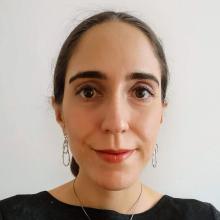
Lynn
Kamerlin
Professor, School of Chemistry and Biochemistry
Lynn Kamerlin received her Master of Natural Sciences from the University of Birmingham (UK), in 2002, where she remained to complete a PhD in Theoretical Organic Chemistry under the supervision of Dr. John Wilkie (awarded 2005). Subsequently, she was a postdoctoral researcher in the labs of Stefan Boresch at the University of Vienna (2005-2007), Arieh Warshel at the University of Southern California (2007-2009, Research Associate at the University of Southern California in 2010) and Researcher with Fahmi Himo (2010). She is currently a Full Professor of Structural Biology at Uppsala University, a Fellow of the Royal Society of Chemistry, and a Wallenberg Scholar. She was also the recipient of an ERC Starting Independent Researcher Grant (2012-2017) and the Chair of the Young Academy of Europe (YAE) in 2014-2015. Her non-scientific interests include languages (fluent in 5), amateur photography and playing the piano.
Research Interests
Research in my group sits at the interface between chemistry and biology, with a focus on using computational tools to understand the chemical basis for complex biomolecular problems. In particular, we want to understand the dynamical and mechanistic parameters that shape the evolution of new enzyme functions, and to then harness these to engineer new enzymes with tailored physiochemical properties. To achieve this, we combine methodology development with applications to real world systems, in close collaboration with experimental groups across the world. Examples of ongoing methodology development include replica exchange empirical valence bond simulations to describe chemical reactivity, and machine learning tools to design new enzymes. We combine these tools with a range of enhanced sampling approaches, structural bioinformatics tools and EVB and QM/MM tools to describe conformational dynamics and chemical reactivity, with applications to biomedically important enzymes such as protein tyrosine phosphatases, or quorum-quenching lactonases that can be used to disrupt bacterial communication. We are also particularly interested in the modular evolution of new protein scaffolds with catalytic function, as well as the incorporation of non-canonical amino acids into industrially relevant enzymes for design purposes.
